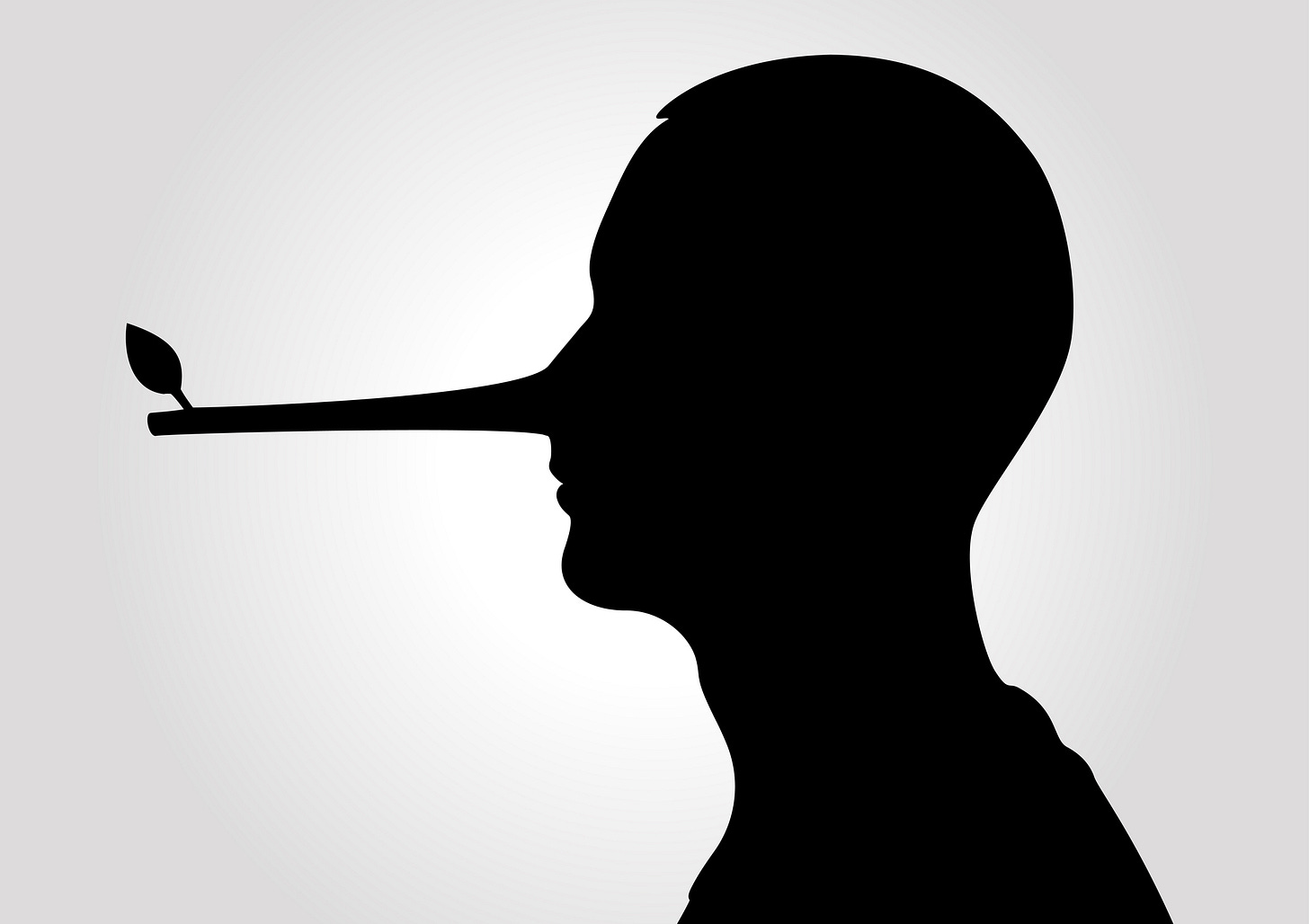Righteous Lies: When DEI Justifies Falsehood
Sadly, lying may be part of the social justice activist archetype

As a former college professor who speaks and writes about hot-button issues, and as a Black man who criticizes progressive politics regularly, I often find myself the subject of false accusations—claims that not only distort my actions but reverse them entirely—from people some may call progressive activists. (Apparently, as a Black man, my critique of leftist politics is especially detrimental to social justice.) I want to be clear: I’m not talking about misunderstandings or heated misinterpretations. I’m talking about outright lies.
I can provide one of many examples. Last year, I testified before Congress with three other panelists on the dangers of diversity, equity and inclusion (DEI) programs, specifically the kind undergirded by critical social justice. I called critical social justice a “quasi-Marxist” ideology that deals in contrived social dichotomies (e.g., Blacks vs. whites), prioritized lived experience, positionality, ever-present racism and the demonization of cultural values deemed “white” (e.g., individualism, hard work, punctuality).
In response to this hearing, a group of academic DEI officers, under the auspices of the USC Race and Equity Center, created a report titled “Truths About DEI on College Campuses.” Full of dishonesty about the hearing and the motivations of its panelists, the report is riddled with logical, psychological and material fallacies. Joy Gaston Gayles, a distinguished professor and head of the Educational Leadership, Policy, and Human Development Department at North Carolina State University, wrote this in her contribution to the document:
When diverse perspectives backed by evidence and thoughtful analysis are entered into the discourse, speech is restricted and banned. This was evident in Dr. Erec Smith’s (an expert witness in the March 7 hearing) recommendation to audit faculty who discuss DEI issues in classrooms, which is a direct infringement on academic freedom and free speech.
Here’s the problem: I never said that. I never even came close to saying that. There isn’t even a statement that could be misinterpreted as a recommendation to audit faculty. All I said, as can be read here, is that as a way of looking at prejudice, critical social justice does more harm than good and is antithetical to social justice.
This isn’t a rhetorically strategic bending of the truth; it is a complete lie. Much of my vocation as a research fellow for the Cato Institute and a co-founder of Free Black Thought is to promote free speech and pluralism. Gayles’ claim completely contradicts that.
My embrace of free speech, along with the fact that I am a Black man, does too much damage to her and her colleagues’ preferred narrative of oppression. I believe Gayles lied out of a sense of duty and loyalty to their cause. What’s more, someone of Gayles’ ethos puts even more power behind this falsehood.
I tell you this because it is not just my story; many people have been victims of this righteous indignation. False testimony is a trend among activists for whom moral certainty overrides factual responsibility. Often, activists’ will toward social justice—however defined—produces a disquieting moral logic: Those who oppose or question them are categorically evil and unworthy of truthful representation. For Gayles and others, lying is a virtue, a tool of liberation and, therefore, justified.
Sadly, lying may be part of the social justice activist archetype. In “Repressive Tolerance,” a veritable how-to for leftist activism, Herbert Marcuse argued that anything called truth by hegemony is an instrument of domination. The logic is that if truth is oppressive, lying must be liberating. If a person challenges the preferred narrative, his or her individual integrity no longer matters. For Gayles et al., I was not so much a person as I was a symbol of hegemony who needed to be defanged by any means necessary.
Social justice activists on the left, and increasingly on the right, seem to answer Thomas Sowell’s famous question, “Is Reality Optional?” with a “yes,” as long as the goal is justice for the downtrodden. Examples include the exaggerated rate of police killings of unarmed Black men on the left and the craze of the “QAnon” conspiracy theory on the right. Each demonized the other’s ideological foundations, which was really all that mattered.
It does not matter that I, too, want justice for the downtrodden. What matters is that my tactics align too closely with the status quo, with the negative connotations of “cishet white males.” The fact that I am Black barely came up in the DEI officers’ response to my testimony, and when it did, no real significance was attributed to it. Readers may come away thinking I am a white liar, or a nonwhite liar who wants to be white, thus damaging my ethos, which is the entire point.
This will not do. We cannot allow justice to be redefined as whatever advances an ideological agenda. That’s too simplistic. A society in which people are punished for things they didn’t do, where truth is subordinated to narrative, is not simply wrong and illiberal. It’s dangerous.
This is not a request for sympathy. It is a call for truth and clarity. It is a request that we at least acknowledge the facts before entering into debate. It is a plea to see me not as a symbol, but as a person with his own reasons and rationales for his thoughts and actions.
Inconvenient truths should not be replaced with lies. They should be faced head on. Otherwise, we are not working toward progress; we are sliding toward societal dissemblance and greater injustice.



